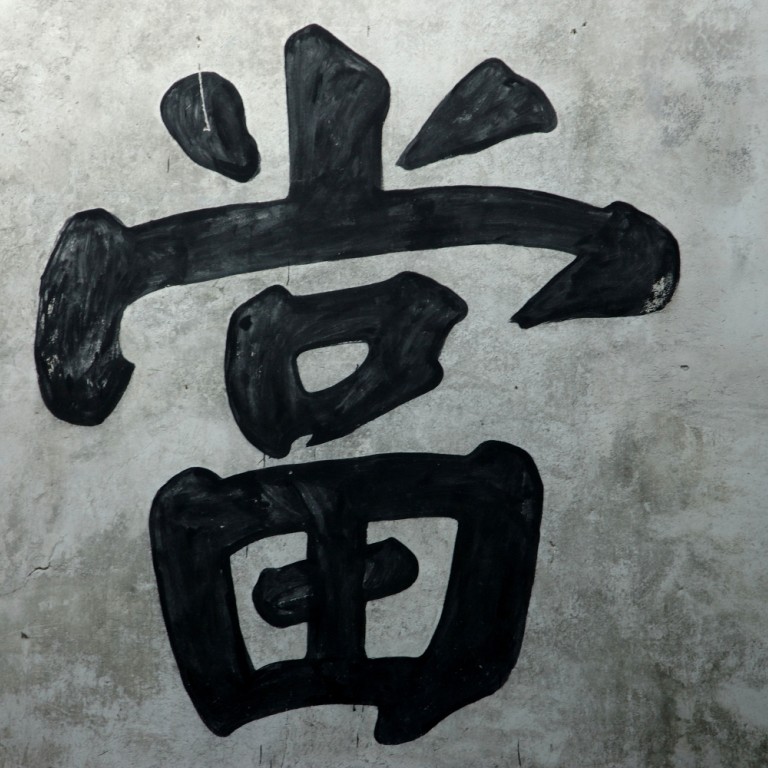
Huirong IPO prospectus should give potential investors pause for thought
Rollover of debt comprising 16pc of loan book, sale of defaulted loans to third parties at par and convoluted corporate structure raise questions
Lending to small business is on the lips of every mainland banker and official nowadays.
And now here comes China Huirong Financial with the first public offering by one of the country's pawnshops. Should one jump on the wagon?
It's certainly not for the faint-hearted, judging from the operations of the industry revealed by its prospectus.
To most of us, pawnshops are where you get some urgently needed cash by depositing your diamond ring or Rolex watch. But that's not how they work on the mainland.
You can borrow big bucks with your apartment or even equity interest. Of Huirong's 746 million yuan (HK$943.7 million) in lending, 54 per cent is guaranteed by real estate and 30 per cent by shareholdings, the prospectus says.
In short, pawnshops up north are mini banks that ask for less paper, lend faster and charge more. Huirong charged an average annualised interest of 33.66 per cent, plus an administration fee, in the first half of this year.
No mainland pawnshop has ever listed here. To be an issuer or investor, you have to be really brave
(The monthly interest rate on the loan is regulated but the administration fee is not. As liquidity on the mainland has tightened, Huirong's administration fee has climbed from 11.5 per cent in 2010 to 28.08 per cent this year.)
Needless to say, its customers are largely private enterprises shut out by banks. They dominate the 100 or so customers of Huirong, which is based in Jiangsu, nicknamed the hub of private enterprise.
Given the massive collapse of Jiangsu companies and the cooling of property markets, one could be excused for expecting Huirong's book to be an ugly one. It is not.
Its percentage of overdue loans dropped from 33.6 per cent in 2010 to 5 per cent in June this year, while profit rose 2.3 times to 96 million yuan last year and interim profit this year was 63 million yuan.
Huirong attributes that to its risk control and successful court actions. Three loan collection cases are, however, more telling.
First, in November 2012, the company lent 125 million yuan to a commercial property developer that had registered capital of 50 million yuan.
"The borrower was facing short-term liquidity needs and approached us for a loan. The group's commercial relationship with the borrower began when they approached us," Huirong says in its prospectus.
The developer did not repay and Huirong renewed the loan on the grounds that it had collateral comprising commercial property valued at 245 million yuan, a personal guarantee and several corporate guarantees.
The renewal was made on May 10 this year. Had it not been done, the amount of overdue loans in Huirong's latest financial statement would have increased significantly.
Second, a privately owned manufacturer defaulted on a 35 million yuan loan in November 2011. In July last year, a third-party assignee agreed to take up the loan.
In the normal business world, it would pay Huirong only a fraction of the loan's par value. Yet, Huirong got the 38 million yuan principal and interest in full. Its only job was to get hold of the property collateral, which was valued at 61 million yuan, and the assignee even agreed to bear the costs and expenses.
Why would the assignee do that? Huirong did not explain. The assignee was not a guarantor of the loan but a raw material supplier to the defaulted borrower, it said.
The court ordered the borrower to repay the money in December last year. So far, the assignee has not received a cent.
Third, another generous assignee struck a similar deal with Huirong on a 6 million yuan defaulted loan. Huirong was fully repaid. The assignee, a professional investment company, won a court case in May this year but has not seen any money so far.
Without these interesting deals, Huirong's book would look quite different. Some of you may think this is a reasonable risk to take. After all, it's the only one on offer.
And besides, following the listing, it will have HK$620 million of cash to expand its loan book. That's a significant jump from the 500 million yuan in equity and 170 million yuan credit line it now has.
Pawnshops are allowed to lend money only from their own equity, retained earnings and bank borrowings.
It is indeed a big pie, but only if it is yours.
The fact is Huirong does not own the pawnshop business. That is because there is currently no law governing foreign investment in pawnshops. That means no licence can be granted to Huirong - a foreign company after its listing.
Instead, the licence is held by a mainland entity in which Huirong has no equity holding, just a set of contractual arrangements. Under the contracts, the mainland entity authorised Huirong to exercise all shareholders' rights, pledged its stake to Huirong and promised to sell its stake to Huirong when law allows. Huirong gets the profit in the form of exclusive management and consultancy fees.
The arrangement is unprecedented. It matters because under it, Huirong - a service provider - cannot inject the proceeds from the share offer into the mainland operation.
It plans to open an account on the mainland to remit the money home, use the money as collateral to get local banks to lend to shareholders of the mainland entity the sum for capital injection, and then get approval from the central government for the capital injection. Again, that's unprecedented.
Now, you see why no mainland pawnshop has ever listed in Hong Kong. To be an issuer or investor, you have to be really brave.

